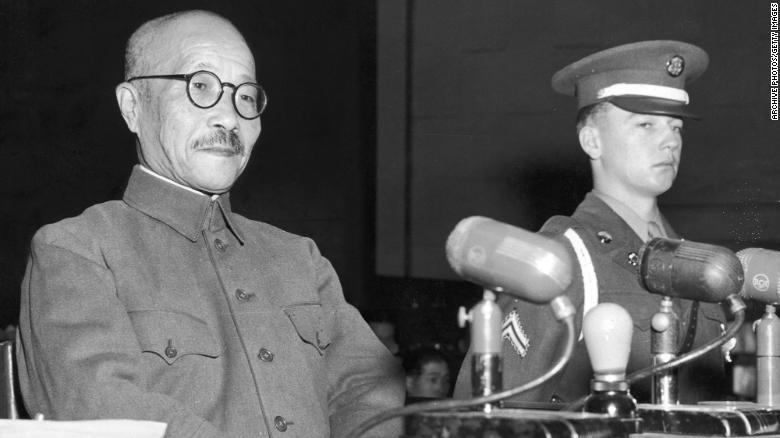- Click to share on Facebook (Opens in a new window)
- Click to share on Twitter (Opens in a new window)
- Click here to share on LinkedIn (Opens in a new window)
- Click to email a friend (Opens in a new window)
(CNN) - It could be the strangest criticism of a US ambassador in recent history.
Harry Harris, sent from Washington to South Korea, has been subjected to strong criticism on social networks and by anonymous Internet users for his mustache.
That little piece of facial hair, as Harris said, "has become something fascinating here in the media."
"If you look at social networks, everything is out there," said Harris, the former head of the US Pacific Forces.
On the surface, criticism borders ridicule. It is just a small patch of hair.
But Harris's mustache has sparked discussions on issues much larger than the ambassador himself: the emotions still raw among many Koreans about the legacy of the Japanese occupation; the prevalence of racism in such a homogeneous society; and cracks that appear in the future of the decades-long alliance between Seoul and Washington when the two sides try to reach an agreement on how to cover the cost of US troops stationed in South Korea, amid reports that President Donald Trump demanded a 400% increase in payment.
The essence of the criticism is that with the mustache, Harris resembles the vilified Japanese leaders who ruled the Korean peninsula with an iron fist during the Japanese occupation.
Some of Japan's most prominent war leaders, such as Hideki Tojo, the prime minister who was later executed by a post-war tribunal, and Emperor Hirohito, had mustaches.
Under Japanese rule, many Koreans were brutalized, killed and enslaved. It is still a memory for older Koreans and remains a very emotional issue in both North and South Korea.
In recent years, war-related problems have become a point of discussion between Japan and South Korea. Intense debates have been unleashed on the status of “women of comfort” (Korean women forced to provide sexual services to Japanese soldiers) and whether Japanese corporations should pay individual reparations for Koreans who were forced to work.
Hideki Tojo during the trials of the International Court in Tokyo in 1947.
Harris was born in Japan of a Japanese mother and an American father, who was a Navy officer, and some online commentators have pointed out Harris's heritage along with the mustache in his criticisms.
But Harris is not Japanese, he is a US citizen. And calling him by his Japanese ancestry would almost certainly be considered racist in the United States.
South Korea is a homogenous society without racial diversity like that of the United States. The CIA World Factbook does not even list other ethnic groups living in South Korea on the country page, but simply refers to the country as "homogeneous." Mixed race families are rare and xenophobia is still surprisingly common.
Harris, who spent years of his life serving his country, said in an interview with the Korea Times in December that the only times his ethnicity came into play was when he criticized China for its actions in the South China Sea. and, recently, in South Korea in relation to his mustache.
"I understand the historical animosity that exists between the two countries, but I am not the Japanese-American ambassador to Korea, I am the US ambassador to Korea," he said. "And take that story and put it on simply because of a birth accident, I think it's a mistake."
Harris said he believes the argument that resembles the history of Japanese leaders in times of war is "deliberately selective." He cited two Korean independence figures with a mustache, Ahn Jung-geun and Ahn Chang-ho, as evidence.
Members of Seoul Jinbo, a civic group of progressive activists, hold a demonstration near the residence of the US ambassador to South Korea, Harry Harris, in Seoul on November 11, 2019. His face is superimposed on that of a cat. because he joked on Twitter that his cats were fine after a group of students broke into his house.
“I didn't let my mustache grow because of my Japanese heritage, the Korean independence movement or even my father. I did it because I could and I thought I would do it and I did it, ”he said.
Harris explained that he grew his mustache to mark a new stage in his life, after retiring as commander of the U.S. Pacific Fleet. and start working as a diplomat.
“I couldn't grow anymore, I couldn't grow hair on the top of my head, but I could grow it in front of my head and I did so. Nothing disastrous in that, I wanted to have a change, ”he said.
When asked if he would shave his mustache to help improve relations, Harris told the Korea Times that someone would have to convince him that it would benefit the bilateral relationship between the United States and South Korea.
"I am who I am. All I can say is that every decision I make is based on the fact that I am an American ambassador to Korea, not the Japanese American ambassador to Korea, ”he said Thursday.
Paula Hancocks and Sophie Jeong of CNN contributed to this report.
Moustache

